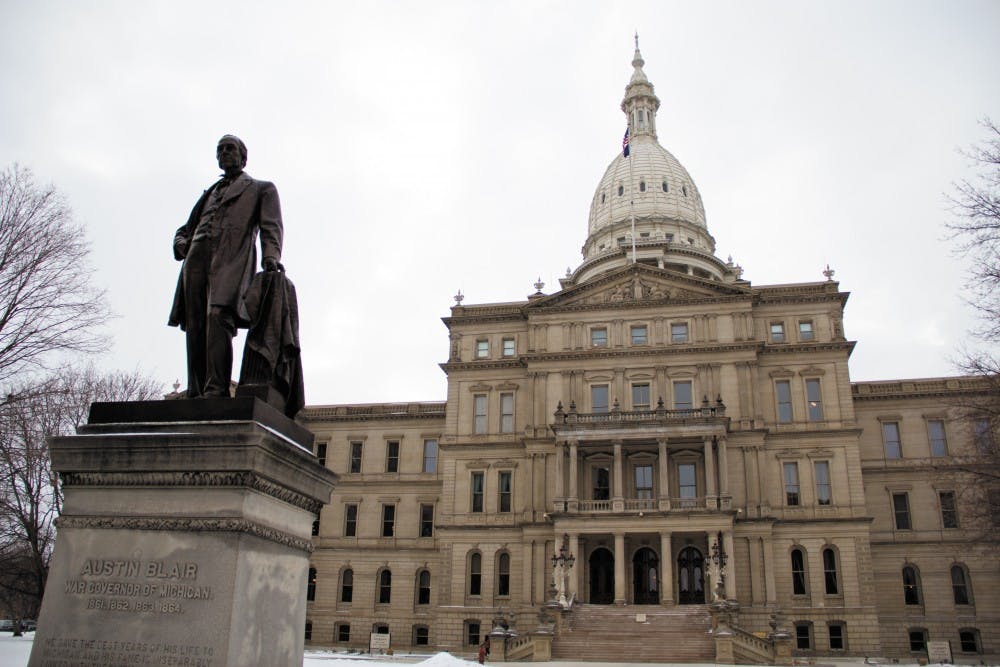Millenials have little interest in politics

Megan Stinson gets frustrated when she sees students her age not voting.
Her generation “one of the biggest, but very unorganized,” Stinson said. She feels that despite what she finds to be a lack of faith in her generation, they have potential to make the most significant change in politics.
“It’s our responsibility as people in a democracy to vote," said the Mount Pleasant freshman. People think they have a right to complain about things if they don’t vote, but no, that’s stupid. You can’t say voting doesn’t matter and then complain about things.”
For instance, in the 2014 gubernatorial election, about 245,000 voters were under 30 years of age - 8 percent of the 3 million who voted in Michigan altogether.
Though Stinson thinks her generation needs to take greater interest in government, disinterest in politics is not specific to Millenials.
Kevin Cotter paid little attention to politics while attending Central Michigan University.
Fifteen years after he graduated from CMU, he’s the Speaker of the Michigan House of Representatives.
Cotter understands that students are busy. However, with the number of groups on campus promoting participation, he said students have easy access to get involved and have their voices heard.
“We are working on our next budget. All of these decisions directly impact young people," he said. "I look at that and think that I should have been more interested earlier than I was. We’re making a lot of decisions that affect students directly. Coming back to the financial side of it and the things we are doing there and whether we are paying our bills or passing them on, that’s something students should be very interested in.”
Cotter said some people have the misconception when contacting a representative, the correspondence “falls into a black hole somewhere.” He claims that’s not the case. Sometimes the correspondent's opinion helps sway decisions that are more “lukewarm” in opinion.
Jayne Stratchan, director of Women and Gender Studies and co-director of the civic engagement division, said young people have specific political interests that are not being addressed by current politicians. This might be because politicians are passing policies that appease their regular, likely voters such as the older demographic.
“I do not blame young people for their disinterest in voting and in other forms of traditional political participation like contacting elected officials, working on a campaign (or) volunteering for a party,” said the political science professor. “I blame it on the break-down in political socialization and in long-term historic trends that have deprived young people of important learning experiences while they are growing up. That is not their fault.”
Cotter noticed an increase in youth being involved in politics in the recent years, something social media and other forms of engagement on the Internet may have contributed toward. Due to the transparency in getting information out, sparks of passion about issues online have become a new efficient way of activism for today’s youth.
“From efficiency standpoint, (activism through social media) is tremendous and helpful. It’s only going to improve and we’ll only see more platforms pop and so I think that has been a great tool,” Cotter said. “Beyond social media, I think it’s great that we’re getting our news online and it is really helpful and expedited. I don’t think we have a new cycle, it’s continuous.”
Professor Edward Clayton said many politicians have started their careers working for the College Democrats or College Republicans or by working as a volunteer for a candidate or an interest group, or by getting involved with student government.
“Figure out what matters the most to you, and find a group of people that’s working to make a difference in that area,” Clayton said. “Work hard, keep learning, make as many connections as you can, and who knows what might happen.”



